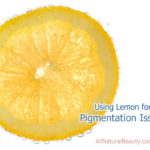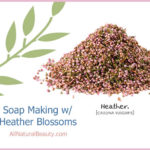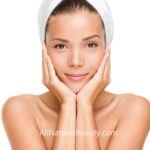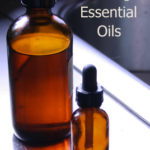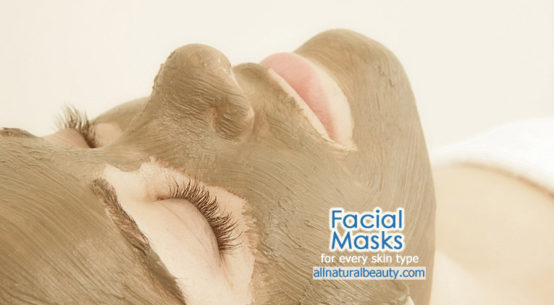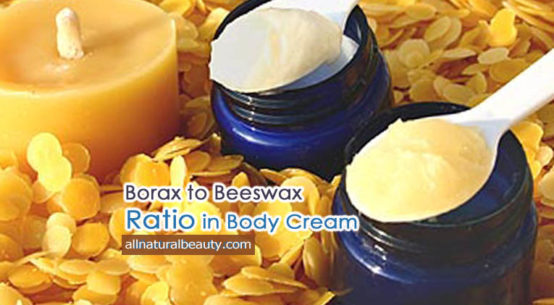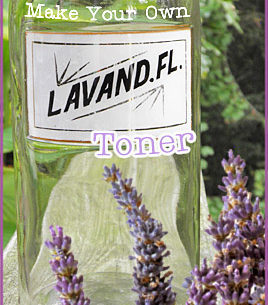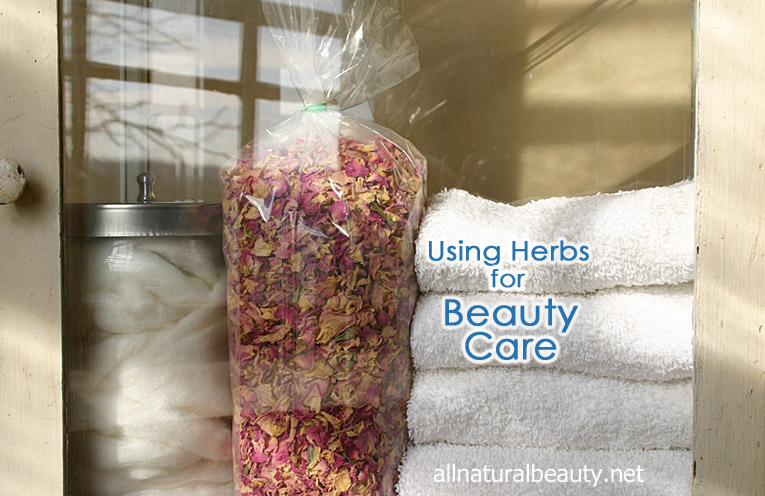
I love formulating cosmetics with herbs. Here are some quick and easy ways to add herbs to your natural skin care routine.
Grind your herbs and add them to masks, scrubs, and bath mixes! I like using herbs and plant ingredients such as lavender and oatmeal. Both are super soothing to the skin. If you are adding them to bath products, add the bath mix to a muslin or mesh bag before adding it to your bath for easy clean up.
Tinctures are a quick and simple way to add herbs to your cosmetics. They are herbal extracts made with natural grain or grape alcohol. They are highly concentrated and have a very long shelf life (1 to a few years depending on the concentration of alcohol). There are many excellent companies that make them, or you can easily make your own (see links below). Add a few drops to masks, scrubs, toners, and replace part of your water phase (1-5%) in lotions and creams. Please note when formulating with them, alcohol can be a little drying, so be sure to only add a small amount to products, and add other emollient ingredients to your formulation. I personally find natural alcohol to be less drying than many of the synthetic alcohols used in cosmetics, but some people can’t tolerate any amount of alcohol (natural or synthetic) in their skin care.
If you don’t want to use tinctures, then try using glycerites, which are herbal extracts made with glycerin. They are super gentle, non-drying, and help with hydration. Use them like alcohol-based tinctures. You can add more glycerite to a formulation than a tincture but don’t use too much or it’ll be sticky! Glycerites also have a good shelf life (they are good for months or a year or longer, depending on the glycerin concentration), though not as long as tinctures.
Try infusing leaves, flowers, and light parts of plants in water to make infusions (which are strong teas). For roots, seeds, dried berries, and hard parts of plants, you’ll want to make a decoction (a type of strong tea, that is made differently than an infusion). You can use them as a toner, hydrator, hair rinse, add them to masks and scrubs, and use them as the complete water phase of lotions and creams. They are super simple to make, however they have a very short shelf life (only a few days refrigerated) so they need to be made fresh and excess infusion/decoction must be stored in the fridge. They can shorten the life span of products so use products made with them up quickly, store them in the fridge, and be sure to use a good broad spectrum preservative if keeping products with infusions and decoctions for longer than a few days.
Herbs can also be infused in vinegar. Dilute and add them to toners to tone the skin, and use them to make hair rinses to make hair soft and shiny. Many types of vinegars can be used including apple cider vinegar and wine vinegars.
Another great way to add herbs is to use or make herbal infused oils. Use the oils as a facial or body/massage oil, use in the oil phase of lotions and creams, use as a warm hair oil treatment, or add to balms and salves.
Two products that are made from the distillation of plants are hydrosols and essential oils. Use hydrosols in much of the same manner of infusions and decoctions. Hydrosols, when stored properly, have a good shelf life (they are sterile straight from the distiller), however they are prone to contamination, so handle them with care. I recommend keeping them in the fridge when not in use, but it is fine to leave them out short term in a cool, non-humid room (never store them in the bathroom).
Essential oils are highly concentrated substances. Always be sure to dilute them before use. They are usually diluted in a vegetable, seed, or nut oil (carrier oil). You can add them to all types of products, including lotions, oils, and masks. Other ingredients that are used in the same manner as essential oils are absolutes (sometimes people call absolutes ‘essential oils’, since they contain essential oils in them, but they are made differently, and also contain other plant constitutes), and CO2 extracts.
Different types of extractions have some of the same properties and many different ones. I recommend reading herbal and aromatherapy books to learn about herbal properties.
Resources/articles:
For resources on herbalism, aromatherapy, and scientific plant journals, please see my anb (all natural beauty) personality/manufacturer profile for a list of books and journals.
In addition, check out the links below to my blog entries, my ANB Mall Eco Living articles, and my forum posts on how to make many of these herbal extractions.
How to make and use Lavender-Chamomile infusion and other types of infusions:
https://www.allnaturalbeauty.com/articles/eco-living/67-formulating/217-eco-living-simple-lavender-a-chamomile-infusion
How to make infusions, tinctures, and herbal vinegars:
http://solarkateco.blogspot.com/2005/10/how-to-make-your-own-herbal-tinctures.html
Herbs for hair rinses:
http://solarkateco.blogspot.com/2006/08/hair-rinses-all-natural-haircare.html
Herbs and oils for anti-aging:
http://solarkateco.blogspot.com/2006/07/herbs-and-oils-for-anti-aging-natural.html
Definitions of a tincture, infused oil, infusion, and other herbal products:
http://solarkateco.blogspot.com/2006/06/difference-between-body-butter-balm.html
What are (definitions of) hydrosols, essential oils, and carrier oils:
http://solarkateco.blogspot.com/2006/03/carrier-oils-essential-oils-hydrosols.html
How to make herbal infused oils:
http://solarkateco.blogspot.com/2005/11/how-to-make-herb-infused-oil-herbal.html
Articles on soapwort, soap nuts, and yucca decoctions:
http://solarkateco.blogspot.com/2007/05/soapnuts-soapwort-yucca-skin-cleanser.html
http://solarkateco.blogspot.com/2006/12/soapwort-cleanser-herbal.html
Soap nuts information, includes how to make a decoction:
https://www.allnaturalbeauty.com/articles/eco-living/69-living-an-earth-friendly-lifestyle/391-eco-living-using-soap-nuts-for-green-cosmetics-and-house-cleaning
My recipe for a simple vinegar toner, posted on a forum:
http://www.skincaretalk.com/diy-recipes/14014-lis-snowkittys-basic-vinegar-toner-rinse.html
About the author:
Li Wong has a B.A. in Environmental Studies (Biology) and a M.S. in Environmental Science and Policy. She has been crafting natural cosmetics and studying aromatherapy and herbalism since 2001, and is currently a student of Jeanne Rose’s Aromatherapy Studies Course. Environmental interests include conservation, botany, ethnobotany (uses of plants by indigenous peoples), mammals, organic standards in cosmetics, urban wildlife issues, environmental education and awareness, and public perception. She is the owner of Earth Alkemie, an all natural, vegetarian skin care and mineral makeup company. Li also writes a monthly column for the ANB Mall called Eco Living.



